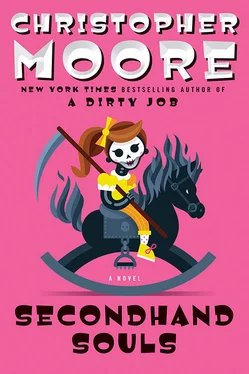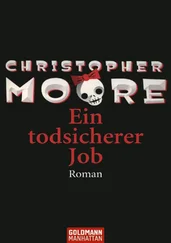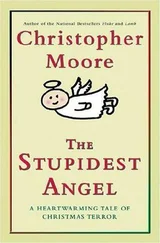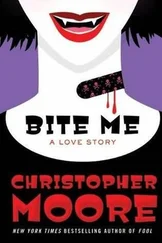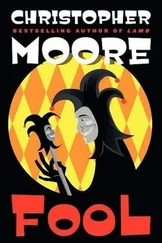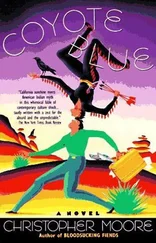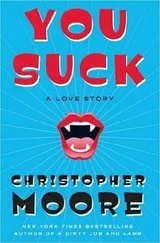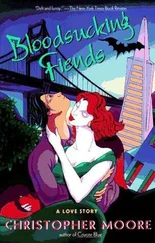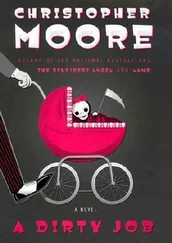Charlie entered the main passage, which was constructed entirely from automobile side windows. Once in it, he felt as if he were walking in a long, serpentine aquarium. Despite the disparate materials from which it was constructed, the Squirrel People’s city had a strange symmetry, a uniformity of design that Charlie found comforting, because it was built for someone his size, yet disturbing, because it was so unlike anyplace human beings lived.
“Hey,” he called. “Anyone home?”
He made his way along a street that was lined by old computer monitors, each gutted of its electronics and filled with a nest built from throw pillows and fabric scraps.
Still no one. The city had tripled in size since he’d been down here, and as he moved he encountered open, communal spaces, as well as what were clearly spaces meant to preserve privacy. The Squirrel People did not mate, as there were no two alike, no two made from the same sets of parts, but they paired off, each finding some affinity with another that Charlie could not see. The only thing they had in common beyond their size—which was chosen quite by accident when Audrey was studying to be a costume designer, long before she’d gone off to Tibet, and she had wanted to design and sew elaborate costumes without the expense of the materials for full-size models—was that each housed a human soul. The first of the Squirrel People had been little more than animated dress forms. Later, Audrey had scavenged the shops of Chinatown for animal parts, trying to give each of them a distinction, trying different parts for limbs, testing efficacy, using first fresh meat and later smoked for the protein that the soul would direct into forming a unique, living creature.
“The universe is always seeking order,” Audrey had said. “The Squirrel People, how they come together, is the best example I’ve ever seen of that.”
“Yeah, or it’s black magic and creepy necromancy,” Charlie had said.
She’d smacked the tip of his enormous dong with her fork, which he thought a not very Buddhist thing to do, and said so. “Buddhist monks invented kung fu, Charlie. Don’t fuck with us.”
“Hey, Bob!” Charlie called down the corridor. “It’s Charlie, I need to talk to you.”
He didn’t really need to say it was Charlie, since he and Bob were the only of their kind for whom Audrey had constructed vocal cords. After Charlie, she’d found out she hadn’t actually been saving souls by making the Squirrel People, but had stopped them in their karmic progression, so he had been the last.
The computer monitor street branched into a half-dozen different passageways, each constructed from a different material. Charlie ducked into one that looked to be made of plastic drainpipe, and shuffled along its length, cutting back and forth until he heard voices coming from the far end. Voices?
He slowed as he approached the end of the passageway and peeked into the wide chamber it opened upon. The Squirrel People had excavated an amphitheater here, under the house, perhaps ten feet below ground level, and it was larger than the grand parlor upstairs. He was looking down over a large group of the people who were surrounding a central platform that looked as if it had been constructed from an old snare drum. How could they have gotten all this stuff down here without being seen?
Bob stood on the snare drum in his bright red beefeater uniform, holding his mighty spork over his head as if it were the staff of Moses.
“Bring the head for Theeb!” he shouted.
“Bring the head for Theeb. Bring the head for Theeb.” The Squirrel People chanted.
From another passage an iguana-headed fellow in a tricorner hat and a squirrel girl in a pink ball gown emerged carrying a silver tray between them. On it was the raggedly severed head of a calico cat.
“Bring the head for Theeb,” they chanted.
Charlie backed into his chamber. How were they chanting? Sure, some of them were still making the clicking noises, the growls, the hisses he was used to, but some were chanting. They had voices.
He crouched and backed away until he was out of sight of the amphitheater, then he turned and scurried out of the city under the porch.
Agreat regret of ghosts lingered on the Golden Gate Bridge. Mad as bedbugs, they slid down the cables, swam in the roadway, hung
off the upright lines, whipped in the wind like tattered battle flags, dangled their feet off the anchor piers, and called into the dreams of sleeping sailors as their ships passed through the Gate. Mostly they napped, curled up in the heavy steel towers, entwined together in the cables like impassioned earthworms, tucked under an asphalt blanket snoring into the treads of a million tires a day. They drifted along the walkways, spun and buffeted by passersby, wafting along like tumbleweeds, rebounding at the shore to bounce back the other way, waves of spirits, a tide of sleeping souls, dozing until awakened by human anguish in their midst. They could sense a jumper on the bridge and gathered around to watch, to curse, to encourage, to haunt, taunt, and gibe, which is how the ghost of Concepción Argüello came to find Mike Sullivan, the bridge painter, that day.
“Oh, pardon me,” she’d said. “It appears I have upset you. Of course, you need time to adjust. We’ll talk another time.”
She disappeared back into the steel of the tower, leaving Mike breathless and deeply, deeply freaked out. Still, when his supervisor called him down to be debriefed by the highway patrol and the captain of the bridge, Mike didn’t mention the ghost, and he declined the counseling they offered. He’d done the best he could, they said, considering the circumstances. Most of the time, someone who was thinking about jumping just needed someone to say something—someone to notice them, pull them out of the vortex of despair forming in their own mind. The state patrolmen who worked the bridge on bicycles were all trained to look for and engage anyone who was alone, looking pensive, crying at the rail, and they had a great record for bringing people back from the edge, getting them to snap back into the world with just a word of kind concern. He’d done fine, he’d be fine, just take the rest of the day off, regroup, they’d told him.
Mike had taken the rest of the day off, and he had rested, but unfortunately, he had also shared his tale of the ghost in the beam with his girlfriend of fourteen months, Melody, who first suggested that he might have had a ministroke, because that had happened to a guy on the Internet. When he insisted that no, he had seen and heard what he had seen and heard, she responded that he needed to see a shrink, that he was emotionally unavailable, and furthermore, there were much hotter guys than him at the gym who wanted to sleep with her and she had known deep down that there was something wrong with him and that’s why she’d never given up her apartment. He agreed that she was probably right about those things and that she would probably be better off if she slept with the hotter guys at the gym. He’d lost a girlfriend, but he’d gained a drawer in his dresser, a third of the clothes rod in his closet, and all three shampoo shelves in his shower, so he really wasn’t all that broken up about the breakup. Once she was gone, he realized that he didn’t feel any more alone than he had when she had been in the room with him, and he was a little sad that he didn’t feel sadder. All in all, it had been a productive day off.
He’d been back at work for a week and was hanging in the framework under the roadway when the ghost came to him again.
“You know,” she said softly, her voice reaching him before she appeared, sitting on the beam above his head, “when they were building the bridge they strung a safety net under it.”
Читать дальше
